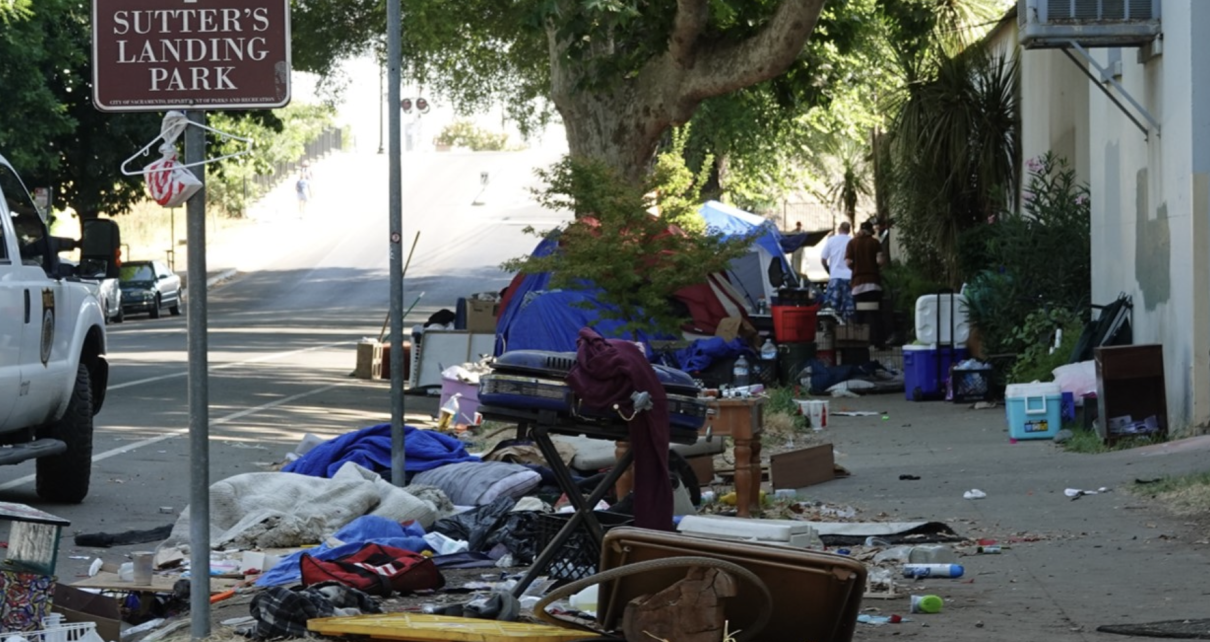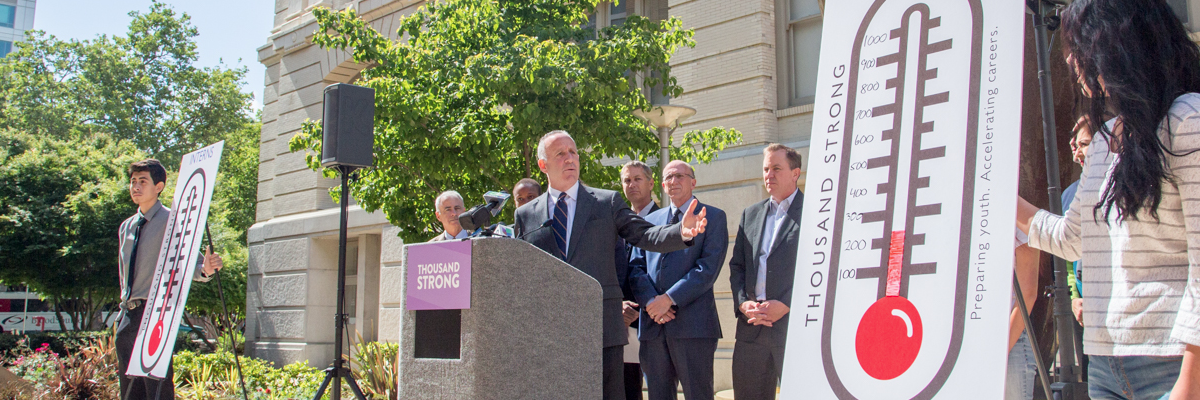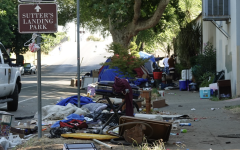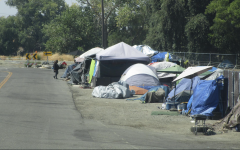
Sacramento homeless, C St. near/around Stanford Park. (Photo: sacra.org)
Sacramento DA Files Brief as SCOTUS Justices Take up Homeless Camping Ban Case
‘The Ninth Circuit Court of Appeals continues to undermine and limit laws that regulate unhoused encampments’
By Katy Grimes, January 14, 2024 12:44 pm
The United States Supreme Court announced on Friday they’ve accepted a case to decide whether Grants Pass, a city in Oregon, can enforce its ban on homeless public camping.
Sacramento’s District Attorney Thien Ho has been a pioneer on homeless legal issues, filing the first of its kind lawsuit against the City of Sacramento in September for failing to abate the homeless crisis in the Capitol city. DA Ho said Sacramento’s homeless crisis has exploded by more than 250% in just 7 years.
DA Ho described the city as collapsing into chaos and said Sacramento’s homeless crisis has become an “erosion of every day life.”
In December, DA Ho added two environmental violations to his lawsuit – violation of a fish and game code, and state water code, caused by illegal homeless camps along the waterways.
What is at the heart of the homeless legal matter is the balance of power between the federal and state governments.
SCOTUS Blog explains the Grants Pass case:
The court’s ruling in City of Grants Pass v. Johnson could affect how other cities address their own epidemics of homelessness. San Francisco, which spent over $672 million during the last fiscal year to provide shelter and housing to people experiencing homelessness, told the justices in a “friend of the court” brief that its inability to enforce its own laws “has made it more difficult to provide services” to those people.
The question is one that the U.S. Court of Appeals for the 9th Circuit, based in San Francisco, has grappled with repeatedly in recent years. In Martin v. City of Boise, the court of appeals held that punishing homeless people for public camping would violate the Eighth Amendment’s ban on cruel and unusual punishment if they did not have access to shelter elsewhere. The court of appeals reasoned that, just as the city could not punish someone for their status – being homeless – it also could not punish them for conduct “that is an unavoidable consequence of being homeless.”
A few weeks after the 9th Circuit’s decision in Martin, three individuals who are involuntarily homeless went to federal court in Oregon to challenge a ban on public camping in Grants Pass, a southern Oregon city with just under 40,000 people.
The city came to the Supreme Court in August, asking the justices to weigh in. The 9th Circuit’s rulings, the city wrote, have created “a judicial roadblock preventing a comprehensive response to the growth of public encampments in the West.” Without the ability to act, the city wrote, such encampments have led to “crime, fires, the reemergence of medieval diseases, environmental harm, and record levels of drug overdoses and deaths on public streets.”
Sacramento County District Attorney Thien Ho issued a statement Friday about the Supreme Court announcement:
The U.S. Supreme Court has agreed to hear the case of Johnson v. City of Grants Pass, in which the Ninth Circuit Court of Appeals continues to undermine and limit laws that regulate unhoused encampments. These limitations were originally created in another Ninth Circuit Court of Appeals case, Martin v. City of Boise.
And District Attorney Thien Ho has even more news:
“With the unprecedented increase of the unhoused population in Sacramento and our community at a breaking point, my office was the first prosecutor’s office in the country to file an amicus brief urging the U.S. Supreme Court to review the Grants Pass case and overturn Martin v. City of Boise. I am grateful that today the U.S. Supreme Court agreed to review these poorly reasoned cases. Our office will soon file an additional amicus brief with the U.S. Supreme Court to overturn both cases.”
The tools that Sacramento’s public officials may use to manage the ongoing problems associated with homeless populations and homeless encampments are affected by the issue at the heart of this case—whether and to what extent California or Sacramento may prohibit public camping or sleeping on or in public
…the rule announced by the Ninth Circuit runs contrary to fundamental principles of federalism, which would leave to the states and their subdivisions the decision-making authority about how to best manage, through criminal sanctions and other means, the inherently local problems they face.
The rule from the Ninth Circuit would deprive local officials of one means for managing the myriad causes and effects of homelessness. Where many methods will be necessary to solve a problem, to remove one from atop a federal bench is poor public policy.
“It’s just about facts and the law,” DA Ho said of his lawsuit against the City of Sacramento.
Ho has repeatedly said the primary mandate of the District Attorney is to ensure public safety for all while balancing the equal administration of justice.





Good to see this progress. Best of luck to DA Thien Ho and County, City of Sacramento to pull out of chaos through these efforts.
It is obvious that previous federal rulings on homelessness have been used by state government in California to distribute billions to political allies in the Homeless Industrial Complex, without reducing homelessness at all, while ignoring public safety and environmental concerns. Any decision allowing local governments to enforce their laws would be welcome.
The underlying motivation of the Homeless Industrial Complex is to relentlessly fail and create more homeless, thereby ensuring eternal job security.
Rod and Fed Up, you are both right about the role of the Homeless Industrial Complex if you ask me. They are incentivized to GROW the problem (not solve it).
Maybe some light at the end of the tunnel? We have homeless living in a river bottom. These people are Petri dishes of disease and filth. We don’t shop in our local store which is a few blocks away. One the store took food stamps the camps really proliferated. If they would just lay off the dope